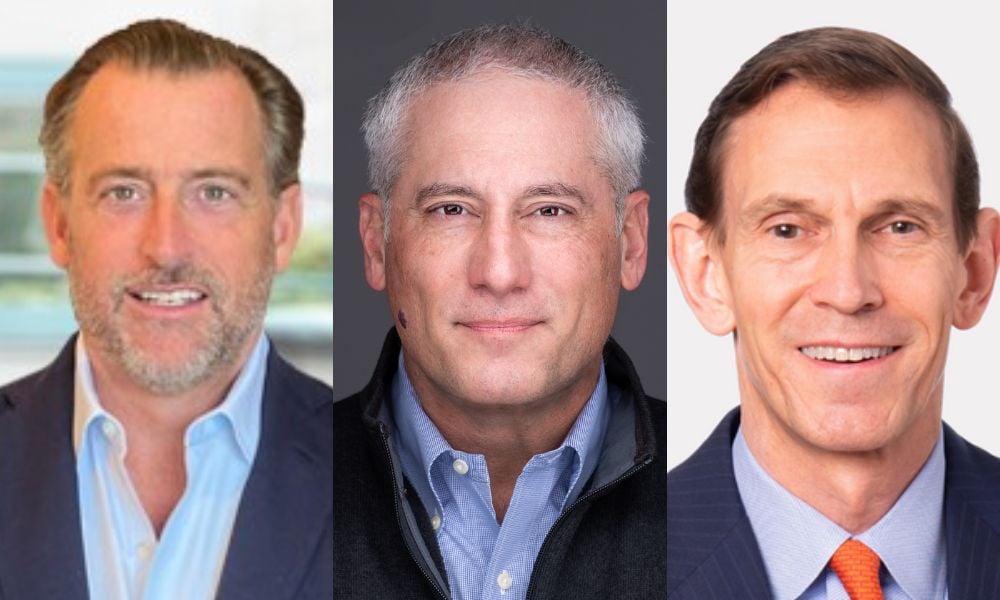

Financial advisors apparently have not forgotten the lessons of 2022 as demand for alternatives remains robust.
But will that continue if the S&P 500 continues to churn higher?
For those that may have already forgotten, stocks sank in 2022 with the widely followed S&P 500 index falling 19 percent. Meanwhile, bonds were of no solace to investors during that fraught year with the iShares Core US Aggregate Bond ETF (Ticker: AGG) dropping over 13 percent.
With nowhere to turn during that tempestuous time, financial advisors feverishly stuffed client portfolios with alternatives and private market assets. Increase the percentage of less liquid, non-mark-to-market, longer-term investments until the storm blew over, or so the strategy went.
And eventually, the storm did blow over with the S&P 500 returning more than 20 percent in 2023 and 2024. Nevertheless, the demand for private market assets has not diminished, according to Bob Long, CEO of alternative asset provider StepStone Private Wealth.
“It's really about both offense and defense,” Long said. “In the case of the private markets, those companies are growing much faster than the typical public company. And while the public markets might spike at a given time, private markets have less volatility and have generated a premium return historically over time.”
As for the continued expansion of private assets in advisory client portfolios, Long attributed it more to the “institutionalization” of alternatives as opposed to the democratization of private assets.
“The products have been available for quite some time. But what you see today with our firm and our good competitors are products that are truly institutional in caliber. Same deals, same investments at the same time, at the same price, with fees that are reasonable in a format that easy for investors to use. So I think we've moved beyond democratization to the next phase,” Long said.
Along similar lines, Steve Houston, managing director and cohead of iCapital Solutions, is seeing vibrant demand for the alternative investments offered on his company’s platforms despite the market’s strong start to 2025. The S&P 500 is up almost 4 percent so far this year.
“I think this year and the next year are going to be a heavy emphasis on registered evergreen private equity funds. There's a lot of new product development there and some really great managers that we work with that are introducing those products to the marketplace,” Houston said.
Houston points out that only about 2 percent to 3 percent of a typical clients portfolio is allocated to private market funds when looking in aggregate across the private wealth management industry. As a result, he said there is an enormous amount of upside potential for increasing that percentage of private market funds in advisory portfolios.
The next frontier is defined contribution plans, he said.
“That's sort of an untapped area right now where you and I don't have access currently to private market funds in that menu of choices. I think there's going to be some important developments there,” Houston said.
In the meantime, Charles Failla, CEO of Sovereign Financial Group, is planning to increase his clients' exposure to sectors like private credit and private equity, as well as incorporate more option hedging strategies.
“With P/E multiples currently well above historical averages, we are interested in ways to offset the risks associated with a stock market that is arguably ‘priced for perfection.' One way is to look to alternative investments,” Failla said.
Failla also addressed the drawbacks of private market assets as well, most notably their tendency to be less liquid than publicly traded stocks and bonds. He alleviates this concern by limiting client exposure to these types of alternative investment to 20 percent to 30 percent of the funds they do not need to access for at least five years.
Yet while Failla seeks a Solomonic solution to counter the liquidity concerns surrounding private market assets – in other words, splitting the difference, Sean Beznicki, director of investments at VLP Financial Advisors, avoids the issue simply by not using them at all.
“The illiquid nature of these investments, combined with a lack of transparency and significant tail risk, makes them less suitable for achieving the long-term spending goals of most of our clients,” Beznicki said. “Our approach prioritizes liquidity, diversification, and risk management to ensure our clients have the flexibility and stability they need, particularly in changing market conditions.”

Integrated Partners is adding a mother-son tandem to its network in Missouri as Kestra onboards a father-son advisor duo from UBS.

Futures indicate stocks will build on Tuesday's rally.

Cost of living still tops concerns about negative impacts on personal finances

Financial advisors remain vital allies even as DIY investing grows

A trade deal would mean significant cut in tariffs but 'it wont be zero'.
RIAs face rising regulatory pressure in 2025. Forward-looking firms are responding with embedded technology, not more paperwork.
As inheritances are set to reshape client portfolios and next-gen heirs demand digital-first experiences, firms are retooling their wealth tech stacks and succession models in real time.
